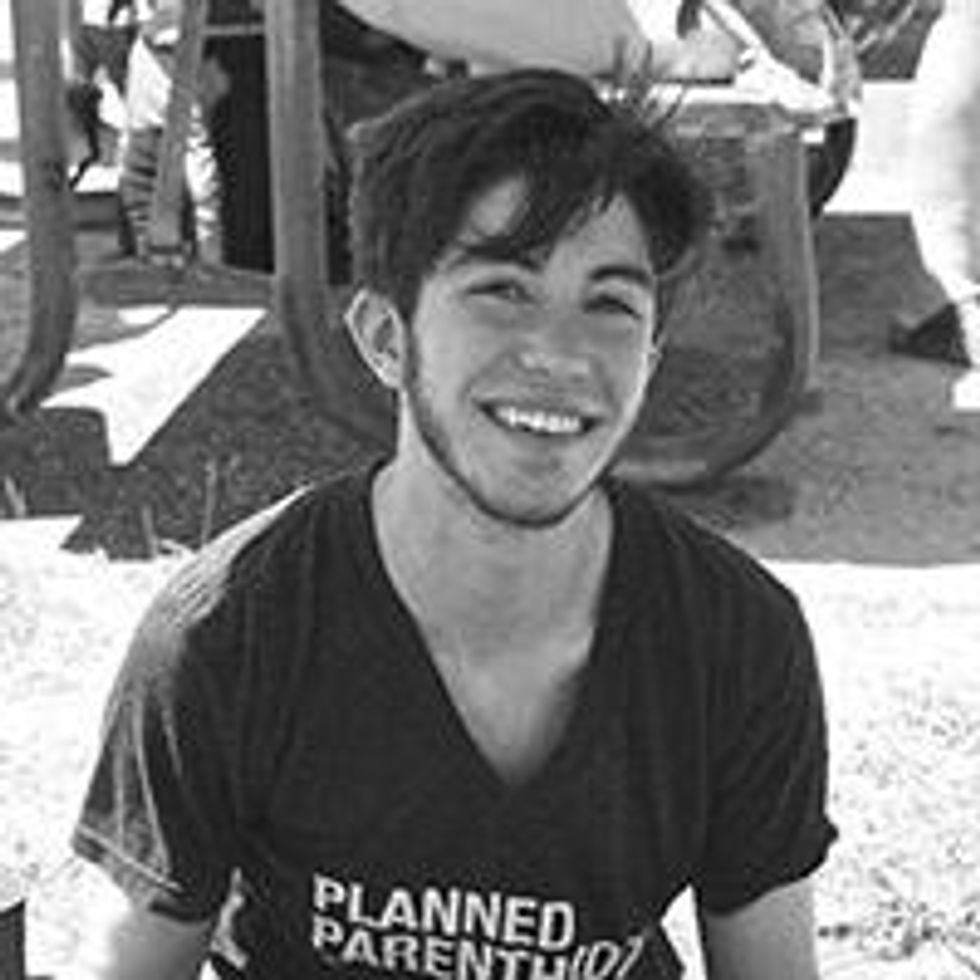The U.S. Department of Labor did a pretty amazing thing recently with proposed rules that would guarantee employees of federal contractors the right to earn up to seven days of paid sick time. The rules would not only let workers use this time to care for themselves and their families but also recognize that families do not fit one mold. Covered workers could use their paid sick time to care for loved ones with whom they have such a close relationship that they are equivalent to family -- even absent a blood relationship. In an age when our families take many forms, including multigenerational families, extended families, single-parent families, LGBTQ families, and "chosen" families, this language is especially meaningful.
Forty percent of American workers lack even a single paid sick day, and workers who do earn sick time may be unable to use it to care for a spouse, partner, or child -- let alone extended relatives and chosen family. Advocates have been fighting throughout the country to pass laws that ensure all workers will have paid sick time to use for themselves or loved ones. But limits on the definition of family mean many workers will not be able to take care of those who depend on them. Such limits are particularly troubling when nearly 80 percent of households in the U.S. do not fit the "nuclear family" model of a married mom and dad and their children.
Our families are made up of more than just biological or legal relations: They are loved ones who are there through our struggles; they provide care when we need it; they rely on us for support and they share in our joys.
Families most affected by narrow family definitions often work in jobs that pay low wages and provide few benefits, come from communities of color and immigrant communities, and include disabled individuals. This results in further marginalization and isolation of these communities, where systemic exclusion through policies, the specific enforcement of policies, and lack of secure, inclusive safety net programs perpetuate a culture that forces these communities to fend for themselves in whatever ways they can in order to just survive.
I'm a Michigander, born and raised, and I never thought I was going to leave. But when the love of my life moved across the country to find a better quality of life -- because, let's face it, it's difficult being both low-income and LGBTQ in Michigan -- my plans changed. We now reside in Washington, D.C., a welcoming activist community. D.C. is also a place where I can have access to medically necessary transgender health care without having to pay tens of thousands of dollars out of pocket as I would have in Michigan. My biological family members -- the individuals most typically defined as "family" in paid leave laws and policies -- are now hundreds of miles away from me. My family in D.C. consists of my partner, a close trans community, and -- serendipitously -- my childhood best friend. If something serious happened to me or my partner, we would rely on this chosen family to help us survive.
Not only are current public paid leave policies insufficient, but we're now seeing more and more legislation that would let businesses actively deny services and benefits to families based on their beliefs about what families should look like. They are in line with the religious exemption bills that have been popping up in states across the country -- they leave LGBTQ families vulnerable to discrimination and could result in the denial of essential paid leave benefits to many individuals and families.
Despite these setbacks, there is enormous progress to celebrate. As a national organizer with A Better Balance and Family Values @ Work, I am fortunate to work with inspiring coalitions and advocates around the country to improve the lives of all families -- not just the "traditional" ones.
It wasn't until I began my current job that I fully appreciated how laws and policies could be drafted to both recognize and provide support to my chosen family. I am proud to be part of a growing effort across the country to raise awareness -- among policy makers, business owners, and community members -- about the need for a broad definition of family. Coalitions from D.C. to Michigan and beyond are fighting for these essential changes as part of a national movement.
We are in a pivotal moment to change how decision-makers at the local, state, and federal levels understand what families really look like. Although the Supreme Court decision on marriage equality represented significant progress, marriage does not define or address the needs of many families. The administration's proposed rule for paid sick days for federal contractors is a great step forward. Together, we must defeat these pernicious religious exemption bills and make sure that our families -- whatever form they take -- are protected by public policies. Only then will we achieve equality and workplace justice.
 PRESTON VAN VLIET is the national campaign organizer with A Better Balance and Family Values @ Work.
PRESTON VAN VLIET is the national campaign organizer with A Better Balance and Family Values @ Work.


 PRESTON VAN VLIET is the national campaign organizer with
PRESTON VAN VLIET is the national campaign organizer with 

































































Charlie Kirk DID say stoning gay people was the 'perfect law' — and these other heinous quotes